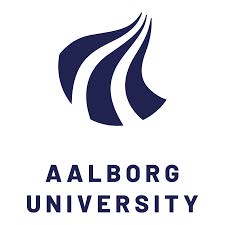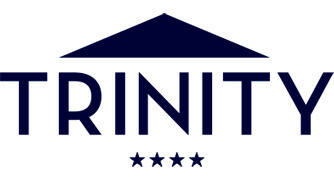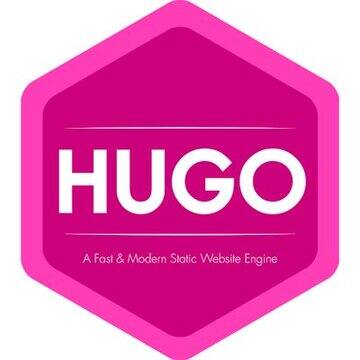- IMPORTANT: EARLY BIRD REGISTRATION CLOSES ON 30.04.2022! -
Theme
The Power of Music – moving towards the core of GIM
EAMI and the organizing team are happy to finally be able to invite to a live GIM conference – and we honor all the presenters at the EAMI online conference in 2020 who stepped in in the middle of the pandemic to create a fantastic day. To include the presenters who chose to wait for a live conference and to invite new presenters speaking on the music in GIM we continue with the same theme in 2022:
The conference will honor the spiritual qualities and affordances of music as the center of the GIM method, and the ways in which the music moves and transforms our body, emotions, mind, and spirit, changes our ways of being in relationships and as citizens. The urgency of living in a world facing the pandemic, global conflicts, gender and race-based violence, climate crisis, trauma and terror challenges us in both private life and on collective levels. How can the music empower GIM clients to find their path?
To develop the field of practice and theory in GIM, we would like the conference to contribute to a deeper understanding of the power of music and how it works out in the GIM experience. We hope to increase the clarity and comprehension when presenting the special role of music in GIM to new generations of students and clients as well as to clinical leaders and founders, helping GIM to grow and spread in the world.
The conference participants are asked to dive into many aspects and facets of the music experience of Guided Imagery and Music, Music and Imagery and other modifications. We would like all contributions to touch at the music itself. Also, philosophical and music psychological contributions are invited. The call for abstracts opens for original research, theoretical papers, roundtables, workshops, and posters.
Focus of the one-day preconference: GIM and Trauma Healing
We invite workshops and papers that relates to the adaptation of GIM for the stabilization and processing of trauma. Contributions focused on specific experiences and methods, related to bodily states and dissociation, and to different kinds of trauma are invited, as well as presentations related to self-care to avoid vicarious traumatization in the therapist. All participants in the pre-conference are offered a workshop by Maria Wang (…), concerning how to avoid therapist vicarious traumatization “Selfcare for the therapist working with traumatized clients”.
Focus of the one-day preconference: PREVENTING BURNOUT, COMPASSION FATIGUE AND SECONDARY TRAUMATIC STRESS IN MENTALLY DEMANDING JOBS
The work of protecting, treating and helping other people is enriching and meaningful. In this often very important period of the other person's life, you are as a professional able to contribute with competence and care. As a professional, you must be able to continuously create a present, trusting, and calm contact with the other person, and at the same time keep the balance within yourself between not being over-involved with the risk of becoming thin-skinned, but also not being under-involved and thus thick-skinned. Keeping the balance is not always easy. This workshop is based on the understanding that preventing burnout, compassion fatigue and secondary traumatization is a team sport that can only succeed if everyone in the organization understand their role and responsibilities.
Welcome to a conference brimming with music, dialogue and empowerment of the growing GIM community!
Keynotes
DISLOCATION, DISPLACEMENT AND RE-CONNECTION: GIM DURING THE COVID-19 PANDEMIC
by Denise Grocke, Australia
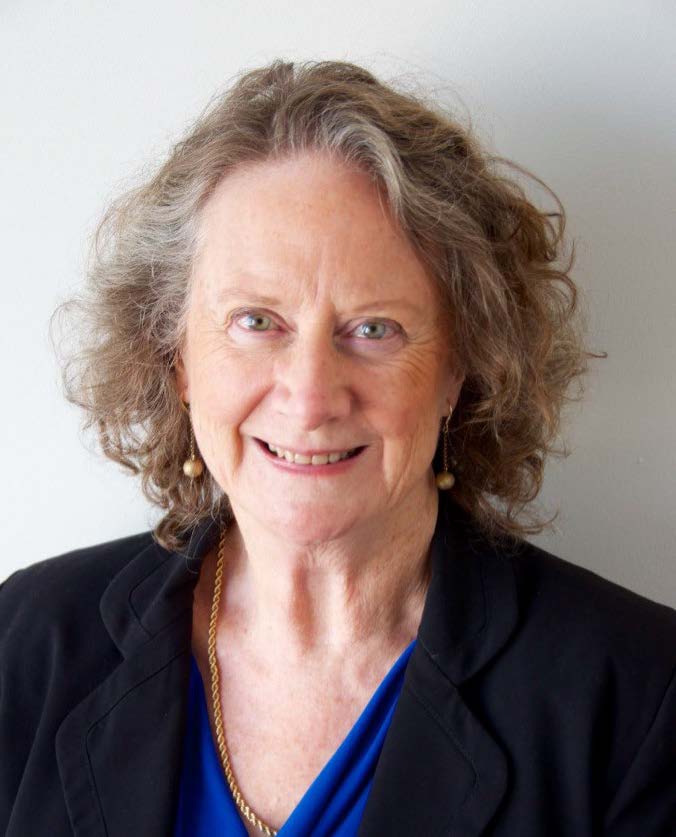
Abstract: As we enter year 3 of the Covid-19 pandemic there is much to reflect on. We have lived through the experience of dislocation within ourselves and for our loved ones; and a displacement of the normal rhythm of the day, week, month and year. The restrictions placed on us have provided time to reflect and appreciate the privileges and freedoms of our previously enjoyed life. Our collective experience has elements that are similar to the Hero/Heroine’s journey, in which there is a descent into the nadir. Through the lived experience of the nadir lie the gifts of the journey, which prompts the question: what are the gifts from this extraordinary period of time? What can we learn about the power of music and GIM in catastrophic times? What is the music that accompanies the nadir? This presentation will capture some of the lessons of the descent and, drawing on studies within the GIM literature and beyond, we will trace the resilience of GIM therapists in meeting the demands and challenges of the Covid-19 pandemic to support GIM clients and ultimately ourselves.
BIO: Dr Denise Grocke AO, PhD, RMT, RGIMT, FAMI is Professor Emerita in Music Therapy at the Faculty of Fine Arts and Music, University of Melbourne, where she founded the music therapy course in 1978. She retired from teaching in 2012 and in 2016 was awarded the Officer in the Order of Australia (AO) for her pioneering work in music therapy as a practitioner, researcher, author and teacher.
Denise has been a Primary Trainer in the Bonny Method of Guided Imagery and Music (GIM) since 1994 and has published extensively on music therapy and GIM through articles, book chapters and texts. Recent publications are as editor of Guided Imagery and Music: The Bonny Method and Beyond 2nd edition (2019); co-author of Receptive Music Therapy (1st edition 2007, 2nd edition, 2022), and co-editor with Torben Moe of Guided Imagery & Music and Music Imagery Methods for Individuals and Groups (2015).
TOGETHER IN MUSIC: PHENOMENOLOGICAL EXPLORATIONS OF MUSIC MATERIAL
by Simon Høffding, Denmark
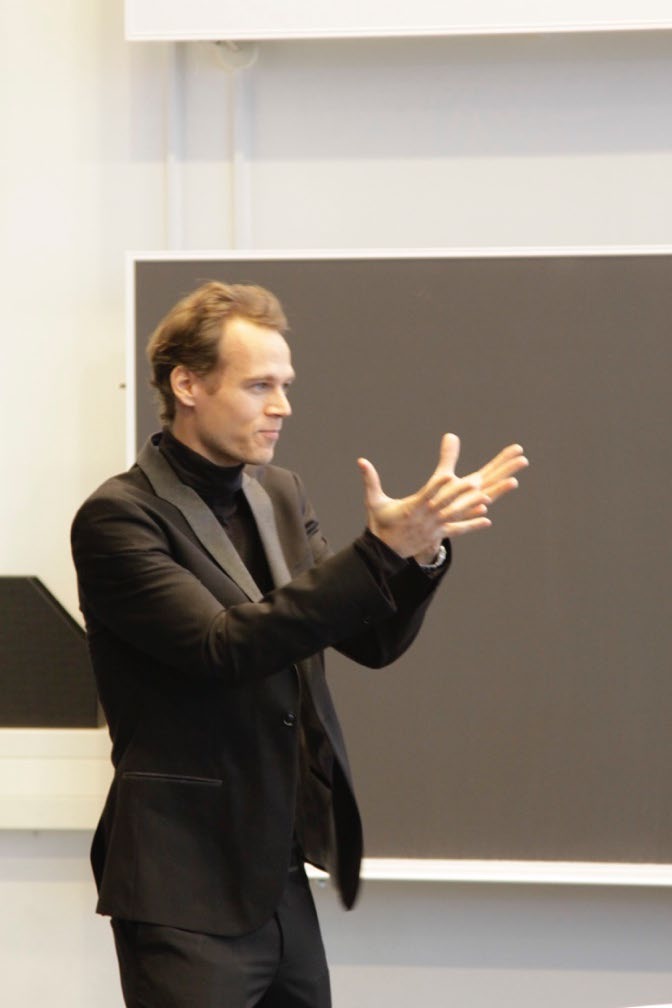
Abstract: In this talk, I present some key findings from my phenomenological investigations on musical expertise as summed up in my monograph A phenomenology of Musical Absorption. For the last 8 years or so, I have been touring with, interviewing, and conducting experiments with The Danish String Quartet (DSQ) – one of the world’s leading classical ensembles today. Having performed together as a tightly knit group for 10-15.000 hours has, I show, changed the structure of their consciousness. Their minds have become resilient to stress, robust yet flexible, but also subject to mental experimentation into zones of dissociation, out-of-body experience, hyper-reflection, amnesia, and sleep-like or blackout-like states. After presenting a general topography of such musical absorption, I focus on the DSQ’s sense of togetherness and analyze the different ways in which they partake in a single performance and a single mind. Here it becomes evident that processes of cognitive empathy, of “putting oneself in the other’s musical shoes” cannot essentially explain the constitution of such a shared mind, which is better understood through analyses of pre-reflective bodily self-awareness and a sense of resonant affect.
Finally, I ask whether we can find any important structural similarities between the musical journeys of such an expert ensemble and that of therapist and client’s relation and development over the course of GIM-interventions.
Simon Høffding is a post-doctoral researcher at the University of Southern Denmark. He obtained his PhD from the Centre for Subjectivity Research, University of Copenhagen in 2015 and has since held positions at the Interactive Minds Centre, University of Aarhus, and at the Department of Psychology, University of Copenhagen. His main interests are in phenomenology, 4E cognition, (bodily) self‐awareness, aesthetic experiences, musical absorption, expertise studies, shared minds, and improvisation. He pursues these interests through interdisciplinary methodologies combining phenomenological analysis, ethnographic field work and psychophysiological experiments. This work is published in Phenomenology and the Cognitive Sciences, Journal of Consciousness Studies, Topoi, Synthese, Mind & Language, and Musicae Scientiae and in his first monograph, A Phenomenology of Musical Absorption (Palgrave Macmillan).
IS MUSIC A HIDDEN THERAPIST IN PSYCHEDELIC THERAPY?
by Dea Siggaard Stenbæk, Denmark
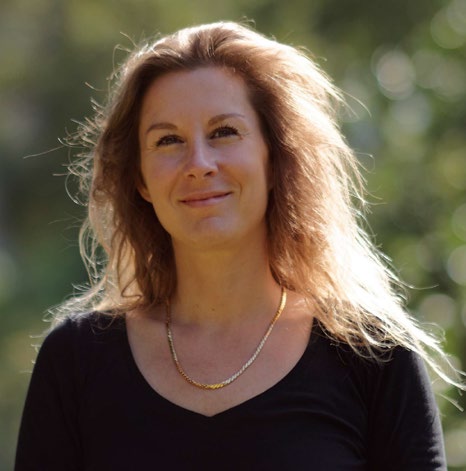
Abstract: Serotonin 2A receptor stimulation with the psychedelic compound psilocybin is emerging as a promising novel therapeutic for treating depression and other neuropsychiatric illnesses. The psilocybin-induced psychedelic experience (i.e., altered state of consciousness, sensory distortions/synesthesia, mystical type experiences and ego dissolution) lasts ~6 hours and is in current best practice supported by carefully selected music. However, we need a better understanding of the proposed synergy between music and acute effects of psilocybin, and whether music can also be used to prepare research participants for the psilocybin intervention. Such knowledge would critically inform us about the clinical utility of music in psychedelic therapy. In my presentation, I will present a series of five studies, where we 1) evaluated the emotional response to music induced by psilocybin as compared to serotonin 2A receptor blocking with ketanserin, including 2) underlying functional changes in brain dynamics of this emotional response, and 3) the association between participant’s perceived effects of music during the acute effects of psilocybin and other prototypical psychedelic experiences such as mystical type experiences and ego-dissolution. I will also 4) present an ongoing study of a novel GIM-inspired music exercise which we are currently testing as part of the preparation for the psilocybin intervention, and I will 5) briefly describe a novel music program which we developed for use during psilocybin interventions. During my presentation results from other of our psilocybin studies at Rigshospitalet will be also presented.
CV: My name is Dea Siggaard Stenbæk, I am a licensed clinical psychologist with a PhD in neuroscience. Currently I am employed at Institute of Psychology, Copenhagen University, and Neurobiology Research Unit, Rigshospitalet, as Associate Professor and head the Psychedelic Psychology Group at Center for Psychedelic Research. In addition, I am currently finishing my four-year training as GIM therapist.
"Afternoon" keynote:
SURRENDERING INTO THE MUSIC – A MUSICIAN´S PERSPECTIVE
by Katrine Gislinge, Denmark

Abstract: Based on her experiences as an international reknowned chamber music and solo concert pianist, Katrine Gislinge will unfold her thoughts on music and the way it touches us. She will tell how life with heart blood and crises has been interwoven with her explorations of many facets of music. She will focus on her definition of freedom of expression, and how this freedom can be heard in the music, illustrated by recordings of GIM music pieces from concerts with different musicians. She will also talk about the phenomenon of the point of surrender, opening for an experience of being one with music – with a parallel to the GIM experience. Katrine will perform the keynote presentation as a dialogue with GIM therapist Bolette Beck.
Katrine Gislinge is educated at the Royal Danish Academy of Music, debut concert 1992. Has played both solo and chamber music concerts all over Europe and the USA.
Over the last three decades, Katrine Gislinge has established herself as one of Scandinavia's leading and most prominent pianists, and with her formidable will to express herself and exceptional empathy for music, she positions herself as one of the most significant artists in Denmark. Katrine Gislinge's repertoire ranges from Bach to the very latest music, and has especially distinguished herself as an interpreter of Mozart's piano concsertos,
Abstract: Based on her experiences as an internationally reknown chamber music and solo concert pianist, Katrine Gislinge will unfold her thoughts on music and the way it touches us. She will tell how life with heart blood and crises has been interwoven with her explorations of many facets of music. She will focus on her definition of freedom of expression, and how this freedom can be heard in the music, illustrated by recordings of GIM music pieces from concerts with different musicians. She will also talk about the phenomenon of the point of surrender, opening for an experience of being one with music – with a parallel to the GIM experience. Katrine will perform the keynote presentation as a dialogue with GIM therapist Bolette Beck.
Katrine Gislinge is educated at the Royal Danish Academy of Music, debut concert 1992. Has played both solo and chamber music concerts all over Europe and the USA.
Over the last three decades, Katrine Gislinge has established herself as one of Scandinavia's leading and most prominent pianists, and with her formidable will to express herself and exceptional empathy for music, she positions herself as one of the most significant artists in Denmark. Katrine Gislinge's repertoire ranges from Bach to the very latest music, and has especially distinguished herself as an interpreter of Mozart's piano concertos.
Abstract: Based on her experiences as an internationally reknown chamber music and solo concert pianist, Katrine Gislinge will unfold her thoughts on music and the way it touches us. She will tell how life with heart blood and crises has been interwoven with her explorations of many facets of music. She will focus on her definition of freedom of expression, and how this freedom can be heard in the music, illustrated by recordings of GIM music pieces from concerts with different musicians. She will also talk about the phenomenon of the point of surrender, opening for an experience of being one with music – with a parallel to the GIM experience. Katrine will perform the keynote presentation as a dialogue with GIM therapist Bolette Beck.
Katrine Gislinge is educated at the Royal Danish Academy of Music, debut concert 1992. Has played both solo and chamber music concerts all over Europe and the USA.
Over the last three decades, Katrine Gislinge has established herself as one of Scandinavia's leading and most prominent pianists, and with her formidable will to express herself and exceptional empathy for music, she positions herself as one of the most significant artists in Denmark. Katrine Gislinge's repertoire ranges from Bach to the very latest music, and has especially distinguished herself as an interpreter of Mozart's piano concertos.
The preliminary culmination of Katrine Gislinge's work with Mozart's concerts came in the spring of 2018, where she - together with the Swedish ”Stenhammer Quartet – on. Next to Mozart, the main emphasis is on Katrine Gislinge's programs in the classical piano repertoire - Beethoven, Schubert, Schumann, Chopin, Brahms, Debussy; but in recent years there has been an expansion of her repertoire including modern classical compositions. Katrine studies philosophy on Copenhagen University.
Preconference workshop:
PREVENTING BURNOUT, COMPASSION FATIGUE AND SECONDARY TRAUMATIC STRESS IN MENTALLY DEMANDING JOBS
with Rikke Høgsted, Denmark
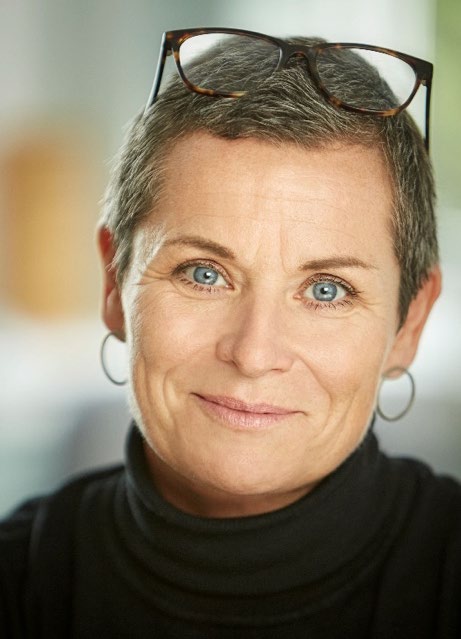
The work of protecting, treating and helping other people is enriching and meaningful. In this often very important period of the other person's life, you are as a professional able to contribute with competence and care. However, in order to remain both professional and caring, it is important to have an eye for your own reactions so that you do not experience mental imbalance in the form of stress, burnout or traumatization etc. As a professional, you must be able to continuously create a present, trusting, and calm contact with the other person, and at the same time keep the balance within yourself between not being over-involved with the risk of becoming thin-skinned, but also not being under-involved and thus thick-skinned. Keeping the balance is not always easy. This workshop is based on the understanding that preventing burnout, compassion fatigue and secondary traumatization is a team sport that can only succeed if everyone in the organization understand their role and responsibilities. It takes a whole organization to prevent a trauma!
Rikke Høgsted is a crisis psychologist, author, lecturer and consultant with a long and broad experience in stress psychology from working as a consultant in the Danish Red Cross and the Danish Cancer Society. Rikke has furthermore worked as a military psychologist in the Danish Defense, been the Chief Psychologist of Falck Healthcare as well as Development Manager in the Regional Psychiatry. Among numerous projects, Rikke has solved crisis psychological tasks in Iraq and Afghanistan and provided Danish shipping companies emergency assistance in connection with accidents, hostage situations and other critical events around the world. In 2018, Rikke published "Grundbog i Belastningspsykologi – Forebyggelse af primær og sekundær traumatisering ved psykisk krævende arbejde". See more at Rikke's website (in Danish): www.belastningspsykologi.dk.
Your returns on the workshop:
• Insight into the psychology of mental strain - knowledge about what makes an impact and thus potentially stresses and at worst leads to mental work injuries
• A good eye for the danger signals within yourself, as well as colleagues or employees
• Ideas for sustainable strategies in the form of concrete prevention tools at multiple levels - individual, group and organizational.
• A common language that qualifies a further dialogue and work with the subject
Abstracts
Deadline
Submission is now closed. Deadline for abstract submitting was 10.1.2022.
Please submit your abstract per email to Prof. Leslie Bunt, Head of the Scientific Committee: Leslie_bunt@hotmail.com.
Please indicate the category of your contribution (clinical, research, musical etc.) and presentation format.
Answers to abstract holders will be emailed latest in March 2022.
Formats
Paper: 30 min + 10 min. discussion
Workshop: 90 min
Panel: 90 minutes (please specify presenters and chair)
Poster
Requirements
An abstract of 200-250 words should include:
1) A precise title and a short description of the question or theme addressed in your presentation
2) The method used to answer the question/approach the theme
3) If relevant any preliminary results or findings or conclusions of any inquiry or project
4) Name(s) of presenter(s)
• You may add up to 5 references.
• Please add 3 to 5 keywords that characterize the content of the presentation.
• Please also add a statement on how your contribution is related to the theme of the conference.
• Please accompany the abstract with a short CV (max 60 words) including GIM credentials and contact address.
• Please also indicate equipment needs.
Theme
The organizing committee suggest the following themes for presentation connected to the conference focus: the nature of GIM music, music and consciousness, reflections on music choice (pieces, programs, free programming), characteristics of music working with specific target groups or formats, understanding the special features of classical music in GIM, the creation and testing of new music programs, composition of new GIM music, live music for GIM, detailed descriptions of the music connected to the specific therapeutic process and moments of change, the use of musical scores and music analysis methods to deepen the understanding of the interaction of client/ dyad and music, the influence of the composer/artists, the significance of musical and cultural background of the client, the influence on the clinical experience of the client´s or guide´s relationship with the music, transpersonal and spiritual depths of the music experience, the significance of music for the transfer of insights and transformations from the session into daily life, music technology and devices, the question of music copyright, overview over GIM programs, etc.
Ethics
It is important that standards of good ethical and scientific practice are followed at the 3rd European Guided Imagery and Music Conference.
GDPR
Furthermore, respect for a person's rights and dignity must be demonstrated in all conference contributions that include, or refer to, material of individual persons. If you are planning to include any video or audio material in your contribution, please make sure to have the written informed consent of involved persons (respondents, clients, patients and/or their carers) ready to show upon request by the Scientific Committee, and that your clinical data is safely kept on either encrypted USB-stick or external harddrive.
Schedule
Download scheduleNote:
An electronic Book of abstracts will be emailed directly to participants
Social programme
Concerts Wednesday and Thursday evenings, Dinner music Saturday evening: Channe Nussbaums orchestra. Possibility for free walks on the old bridge and in the area at any time.
Bridge walking: for courageous people, bridgewalking can be preordered (not through the conference) at: https://www.bridgewalking.dk/.
Venue and Transportation
Trinity Hotel & Conference Center
Website: http://www.trinity.dk
The venue is a four-star award winning hotel and conference center in Fredericia in Southern Denmark, accomodating more than 150 attendents. The standards of accommodation and food (including special diets) are good, the levels of technical facilities and support are very good and yet the price level is fair for the country. The hotel is called Trinity because it was originally founded with a Christian worldview, and the staff is dedicated, helpful and kind.

Trinity is located near the old bridge between Funen and Jutland, with a view to the water, Lillebælt (= Small Strait) where it is possible to take walks in the forest and a morning swim, and there are also options to go to a larger nature area nearby where it is possible to see white deer.
There is also an amphitheater room for keynotes and several conference rooms that are organized in the center of the hotel in two floors (with elevator).
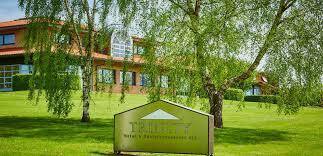
Green key sustainable hotel: Trinity is awarded with a Green Key, which is the international ecolabel for tourism. It means that the hotel has an environmental leadership, rreduced use of energy and water, waste sorting, supports ecological products, uses environmentally friendly washing and cleaning products, avoids chemical herbicides, and much more.
Food
All meals are included in the conference fee, and there will be options for special food requests via an app which will be provided one week before the start of the conference.
There is a restaurant, so it is possible to order meals at the spot for participants arriving early to the venue (Tuesday evening).
Rooms
There are double room and single rooms available at the conference center (see Registration).
Location
Address: Gl. Færgevej 30, 7000 Fredericia, Denmark
Transport to Trinity
Train
Take the train to Fredericia Station ("Fredericia St").
Tickets for train travel through Germany: Deutsche Bahn to Fredericia St..
Tickets for train travel within Denmark: DSB.
From Fredericia Station:
Bus no. 3 to "Snoghøj" (25 min.) or taxi.
Car
From Zealand: Highway E20 to Fredericia, take off at 60 Fredericia V.
From Jutland: Highway E45 to Fredericia, take off at 60 Fredericia V.
Google maps: GPG6+8J Fredericia, GPS: 55.525927,9.711812
There is free parking at the hotel.
Flying
The nearest airports are Billund (BLL), Sønderborg (SGD), Copenhagen (CPH) or Hamburg (HAM).
From Billund Airport: Taxi (56 or 72 km - approx. 165 EUR - ask for the shortest drive!), or bus no. 43 to Vejle Station (30 min), then train to Fredericia station (15 minutes).
From Copenhagen Airport: Train (track 2) to Copenhagen central station (København H), then train to Fredericia Station which runs every hour.
More info
• Taxi: www.taxasyd.dk, email: Bestil@taxasyd.dk, phone: +45 75 50 34 11.
• Planner for public transportation: www.rejseplanen.dk.
About Denmark
Denmark is a small country with 5.5. million inhabitants, a EU member but we have our own currency (Danish Kroner). The weather in September varies from nice and sunny to chilly, rainy and windy. You are advised to bring good walking shoes for the forest paths.
Registration and Accomodation
Deadline
Early Bird registration is open until April 30th, 2022.
Online and On-Site Participation
The conference is held as a hybrid conference: on-site at Trinity Hotel, Fredericia, combined with online participation.
Online Participation includes:
• A link for streaming to attend to four keynotes, selected papers, opening ceremony and 2 music concerts.
• All papers and keynotes will be available for streaming one month after the conference.
• Workshop participation (only online workshops)
On-Site Participation includes:
• Conference attendance
• Conference material (paper, name tag etc)
• All meals, dinner with 3 courses Saturday evening, coffee/tea breaks
• Ceremony for new fellows
• Music performances
Fee Structure
For the fee structure of EAMI GIM 2022 conference, the local organisation committee finds it important that fees are affordable for all attendees, and that GIM therapists and -students from low-income countries are encouraged to participate, especially in today’s harsh economic conditions in Europe. To achieve this, all members of the local organising team are working in an honorary capacity, and being a non-profit organisation, we simply try to cover the costs in hosting this conference. 10 tickets are available at reduced price for students and participants from low-income countries, by the principle of firstcomers.
You will find all fees listed in the registration process. Below is an overview for your convenience.
Early Bird Rates
Requires registration & payment until April 30th, 2022!
ONLINE PARTICIPATION (Wednesday - Sunday): 160 EUR / 1200 DKK
FULL CONFERENCE (Pre-conference + main conference, Wednesday 9:00 - Sunday 14:00): 750 EUR / 5585 DKK
PRE-CONFERENCE ONLY (Wednesday 9:00-18:00 with small breakfast, lunch and coffee/tea + workshop): 160 EUR / 1200 DKK
MAIN CONFERENCE ONLY (Wednesday 18:00 with dinner - Sunday 14:00): 630 EUR / 4690 DKK
Regular Rates
Registration & payment after April 30th, 2022:
ONLINE PARTICIPATION (Wednesday - Sunday): ? EUR / ? DKK
FULL CONFERENCE (Pre-conference + main conference, Wednesday 9:00 - Sunday 14:00): ? EUR / ? DKK
PRE-CONFERENCE ONLY (Wednesday 9:00-18:00 with small breakfast, lunch and coffee/tea + workshop): ? EUR / ? DKK
MAIN CONFERENCE ONLY (Wednesday 18:00 with dinner - Sunday 14:00): ? EUR / ? DKK
ONLINE PARTICIPATION (Wednesday - Sunday): 160 EUR / 1200 DKK
FULL CONFERENCE (Pre-conference + main conference, Wednesday 9:00 - Sunday 14:00): 775 EUR / 5768 DKK
PRE-CONFERENCE ONLY (Wednesday 9:00-18:00 with small breakfast, lunch and coffee/tea + workshop): 175 EUR / 1300 DKK
MAIN CONFERENCE ONLY (Wednesday 18:00 with dinner - Sunday 14:00): 645 EUR / 4800 DKK
Reduced Rates
For participants from countries with a GDP per capita below 20,000 EUR, and for students, we offer a Special Main Conference Fee (10 tickets available): 530 EUR / 3950 DKK. Contact Bolette D. Beck at bolette@ikp.aau.dk to receive a link to register with the special rate.
Accomodation
Trinity Hotel & Conference Center
Note: If you wish accomodation at Trinity, do not book directly with the hotel. Rooms at Trinity are booked together with your registration and at conference rates.
• Single room: 87 EUR / 645 DKK per night
• Double room: 107 EUR / 795 DKK per night for 2 persons, or 53,50 EUR / 397,50 DKK for one person per night.
Hotel Medio
Website: https://www.hotelmedio.dk/
Hotel Medio is located nearby across the road, and is a cheap alternative to Trinity Hotel. Payment is made at arrival.
• 4-6 persons per room, 30-40 EUR / 220-300 DKK per person per night, without breakfast
Payment and Registration
Registration and payment is processed through NemTilmeld (EasyRegistration).
If you book a double room, please specify desired room-mate in the comment field.
• For Danish participants paying in DKK: https://gim2022dansk.nemtilmeld.dk/
• For all other participants: https://gim2022.nemtilmeld.dk/
Conference organization
The EAMI Board and the Danish organization group
Charlotte Dammeyer, Julie Exner, Inge Nygaard Pedersen, Catharina Messel and Bolette D. Beck.
Bolette D. Beck, Charlotte Dammeyer, Julie Exner, Julie Kolbe Krøier, Catharina Messel and Inge Nygaard Pedersen.
Bolette D. Beck, Charlotte Dammeyer, Julie Exner, Julie Kolbe Krøier, Catharina Messel and Inge Nygaard Pedersen.
Scientific committee
Head of scientific committee: Leslie Bunt (GB)
Members: Lars Ole Bonde (DK), Gro Trondalen (NO), Christa Steingruber (CH), Barbara Zanchi (IT), Svein Fuglestad (NO)
PR support
Jurgita Zalgiryte
Organizer
Bolette D. Beck
Contact
Bolette D. Beck
bolette.d.beck@gmail.com or bolette@ikp.aau.dk
Mobile phone +4527283692
Acknowledgements
We thank our partners, sponsors and others who enabled our common endeavor. Thank you in particular to Aalborg University – Department for Communication and Psychology for support.
